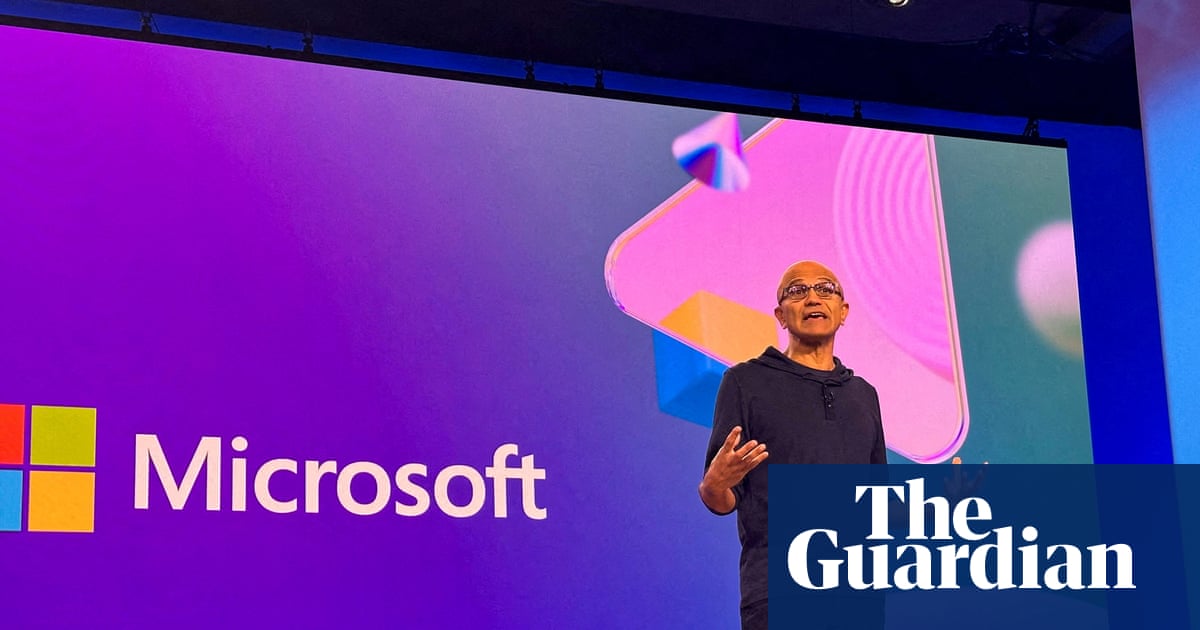Microsoft on Wednesday dismissed concerns about excessive spending on AI, reporting elevated profits even as it faced an outage of its cloud computing service, Azure, and its office software suite, 365. The strong earnings report comes a day after a deal with OpenAI lifted the tech giant’s value to more than $4 trillion.
After its Xbox and investor relations pages went down, the company issued a statement saying: “We are working to address an issue affecting Azure Front Door that is impacting the availability of some services.”
The outage did not affect the software giant’s financial outlook. The company reported first-quarter earnings of $3.72 per share versus analyst expectations of $3.68, and revenue of $77.7 billion versus expectations of $75.5 billion, according to Bloomberg consensus estimates.
That’s up from $3.30 per share and $65.6 billion in revenue the company earned in the same quarter last year.
Microsoft’s closely watched Azure cloud business grew about 40%, also beating expectations. Operating income rose 24% to $38 billion, higher than projected. The company said its net income was $27.7 billion.
“Our planetary-scale cloud and AI factory, along with co-pilots in high-value domains, are driving broad diffusion and real-world impact,” said Satya Nadella, president and CEO of Microsoft.
“That’s why we continue to increase our investments in AI in both capital and talent to take advantage of the enormous opportunity ahead.”
The company reported spending $34.9 billion more than expected on new AI-related projects during the quarter, a 74% increase from the same period a year earlier.
Microsoft’s earnings report comes as investors welcomed a renewed deal with OpenAI this week that sees the once nonprofit AI company become a for-profit entity and ties Microsoft more closely to the company.
Under the new deal, Microsoft will hold 27% of OpenAI Group PBC, valued at approximately $135 billion, while OpenAI’s nonprofit arm will take a $130 billion stake in the for-profit company.
The earnings report gives Wall Street its latest look at the company’s AI and cloud growth. Graphics chip maker Nvidia crossed a threshold Wednesday to become the first company valued at $5 trillion as prospects for a U.S.-China trade deal improved. The broader US stock market hit record highs earlier in the week, boosted by hundreds of billions of dollars of investment in AI.
Earnings from Microsoft, along with Meta and Google parent Alphabet, on Wednesday kick off a week of reporting from the “Magnificent Seven,” the world’s most valuable publicly traded companies.
Investor anxiety about the potential inflation of a market bubble in AI-related investments similar to the overinvestment of the mid-to-late 1990s has been growing. But bubbles aren’t necessarily visible until they burst.
after newsletter promotion
In an earnings conference call, Microsoft CFO Amy Hood sought to calm fears of an AI investment bubble, explaining that the company’s aggressive expansion of AI capacity, up 80% this year, and data centers doubling in size in the next two, was to meet demand that was already booked up.
“Our need to continue building infrastructure is very high and that is for the business booked today and not any new business booked,” Hood said, adding that the company had been short on processing capacity for several quarters.
“I thought we were going to catch up, but we’re not,” Hood said. “Demand is increasing and usage is increasing very quickly. When we see these kinds of demand signals, and we know they’re behind, we need to spend. But we’re spending with a different confidence in usage patterns and reserves, and we feel good about that.”
But, he warned, Microsoft is still likely to “run out of capacity.”
Companies related to AI and cloud computing are valued at a combined $20 trillion, and market-wide gains are 18% in 2025, or about $3.3 trillion, according to Reuters. Investors typically want to see returns on AI capital spending, or CapEx, follow suit as markets continue to reach record highs.
Microsoft, Alphabet, Meta and Amazon are projected to invest hundreds of billions in capital expenditures over the next year, primarily building data centers and associated infrastructure for artificial intelligence. Investors may be unfazed even without strong signs of revenue growth and settle for signs of strong AI adoption. The Dow Jones Industrial Average hit a milestone of 47,943 on Wednesday morning.
“With five of the Mag Seven reporting this week, what the market expects to hear is confirmation that all this AI CapEx is coming, that AI revenues and profits are coming,” Scott Wren, senior global market strategist at Wells Fargo Investment Institute in St. Louis, Missouri, told Reuters this week.
Part of AI’s economic boom is likely to come from cost savings. Microsoft announced earlier this summer that it would cut about 9,000 jobs. Amazon reportedly plans to cut up to 30,000 corporate jobs, or 10% of workers in the white-collar division, to offset overhiring during the pandemic’s peak demand.
With the application of AI technologies, company leaders are increasingly asked to justify hiring a human being, with additional costs in health insurance and pensions, along with human resources and other management officials, when the role could be played by AI. As a result, human resources divisions are likely to be the first to shrink as AI takes hold.

